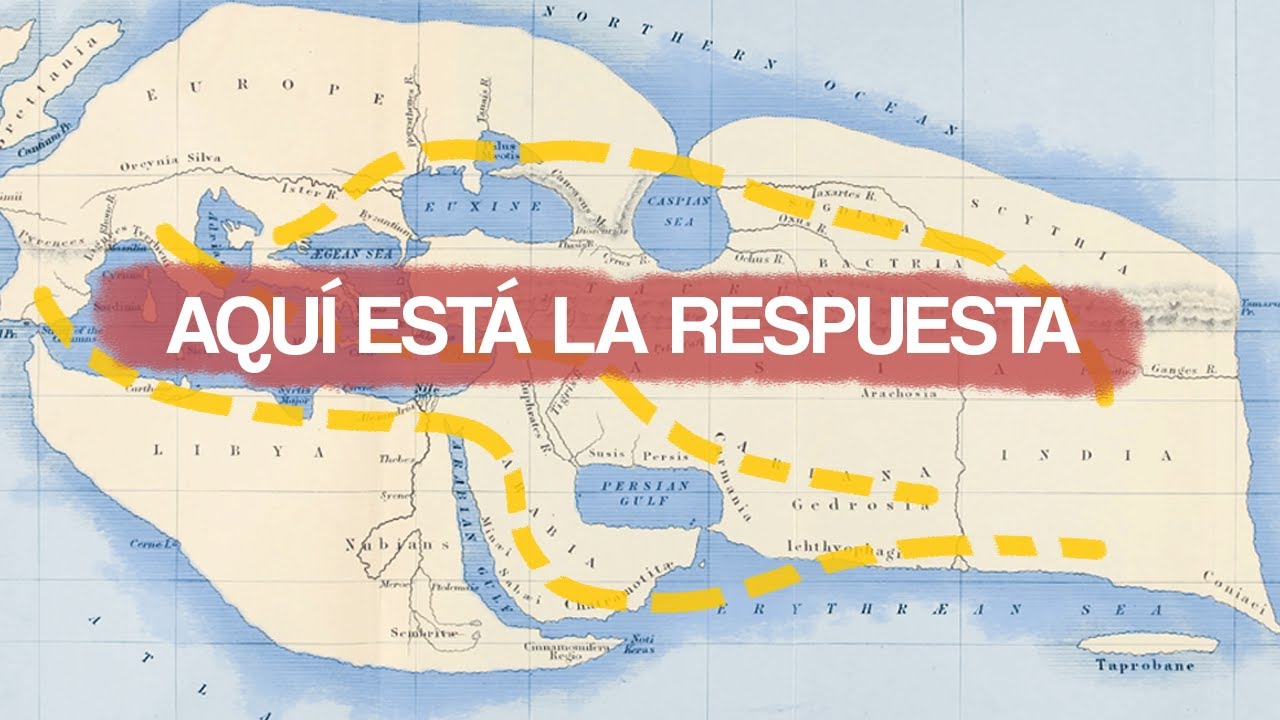Meet the Author: Tim Marshall
Summary
TLDRIn this interview, Tim Marshall, author of 'Prisoners of Geography,' discusses how geography influences global politics. Using examples such as Russia's need for warm water ports, Pakistan's strategic concerns with India, and China's expansion in the South China Sea, Marshall explains how physical geography shapes nations' decisions and conflicts. He also touches on future geopolitical challenges like water wars, the role of technology in bending geographic limitations, and cooperation in the Arctic. The conversation highlights the ongoing importance of geography in understanding international relations and global power dynamics.
Takeaways
- 🌍 Tim Marshall spent 25 years reporting global crises, wars, and elections, and is now an author of 'Prisoners of Geography'.
- 🗺️ The book argues that geography shapes and often limits the actions and behaviors of nations and their leaders.
- 🌐 Marshall believes that while politicians and the military consider geography, the public and media often overlook its impact.
- 🇷🇺 Russia's invasions and actions, like Crimea, stem from its geographical vulnerabilities, including frozen ports and flatlands prone to invasion.
- 🇵🇰 Pakistan's support of the Taliban is influenced by its fear of India and the need for strategic depth in case of an Indian attack.
- 🇨🇳 China’s geopolitical actions, like its activities in the South China Sea, aim to secure sea lanes and assert dominance as it grows into a global power.
- 🌊 The potential for future conflicts over resources, such as water, could emerge between countries like Egypt and Ethiopia, or Turkey and Syria.
- ❄️ Cooperation in the Arctic, despite potential conflicts over resources, has so far been successful, though Russia's behavior remains unpredictable.
- 🚢 China’s plans, including building a canal through Nicaragua and connecting to Pakistan’s ports, reflect the strategic importance of global access routes.
- 🚀 Marshall highlights the importance of cooperation in areas like the Arctic and space to prevent conflict over natural resources.
Q & A
Who is Tim Marshall, and what is his background?
-Tim Marshall is a journalist who spent 25 years reporting, much of it as the diplomatic editor for Sky News. He covered various global crises, including wars and elections, across regions like the Balkans, North America, Afghanistan, and the Middle East.
What is the main premise of Tim Marshall's book 'Prisoners of Geography'?
-'Prisoners of Geography' argues that geographical realities often dictate how nations behave and interact with each other. Geography limits the options of leaders and plays a crucial, though often overlooked, role in global politics.
How does geography influence Russia's actions, according to Tim Marshall?
-Geography significantly influences Russia’s actions. Russia has historically been invaded from the flat plains in front of it, leading its leaders to seek control of these areas. Additionally, Russia’s lack of access to warm-water ports drives its actions, such as the invasion of Crimea, to secure strategic access to the sea.
Why is Pakistan's foreign policy heavily focused on India?
-Pakistan’s foreign policy is dominated by its fear of India, largely because Pakistan lacks strategic depth. If India were to attack, Pakistan has little space to retreat, and thus it seeks to dominate Afghanistan as a fallback option in case of conflict with India.
Why does China seek control of the South China Sea, according to the script?
-China seeks control of the South China Sea to protect its growing economic empire. As China becomes a global power, it needs to guarantee access to sea lanes for its trade and investments, especially as it competes with the U.S. for dominance in the region.
What is the significance of China's interest in a canal through Nicaragua?
-China’s interest in building a canal through Nicaragua reflects its strategic need to secure trade routes. This canal would provide an alternative to the Panama Canal and facilitate Chinese access to global markets, strengthening its economic power.
How does technology influence geopolitics, according to Tim Marshall?
-Technology helps countries bend the limitations of geography, though it cannot fully overcome them. For example, despite technological advances, natural barriers like the Himalayas still significantly impact relationships between nations like China and India.
What potential conflict involving water resources does Tim Marshall highlight?
-Tim Marshall highlights the potential for water wars, particularly between countries like Egypt and Ethiopia. Ethiopia controls the headwaters of the Nile, and a dam there could limit water flow to Egypt, potentially leading to conflict.
What example of potential conflict over water does the script mention involving Egypt?
-The script mentions a potential conflict between Egypt and Ethiopia, where Ethiopia could control the flow of the Nile River by building a dam. This could severely affect Egypt, which relies heavily on the Nile for water.
What is Tim Marshall's view on cooperation in the Arctic region?
-Tim Marshall suggests that, despite the potential for conflict over natural resources in the Arctic, most countries are cooperating in the region, with the possible exception of Russia. He notes that the harsh environment makes cooperation necessary for resource extraction.
Outlines

Этот раздел доступен только подписчикам платных тарифов. Пожалуйста, перейдите на платный тариф для доступа.
Перейти на платный тарифMindmap

Этот раздел доступен только подписчикам платных тарифов. Пожалуйста, перейдите на платный тариф для доступа.
Перейти на платный тарифKeywords

Этот раздел доступен только подписчикам платных тарифов. Пожалуйста, перейдите на платный тариф для доступа.
Перейти на платный тарифHighlights

Этот раздел доступен только подписчикам платных тарифов. Пожалуйста, перейдите на платный тариф для доступа.
Перейти на платный тарифTranscripts

Этот раздел доступен только подписчикам платных тарифов. Пожалуйста, перейдите на платный тариф для доступа.
Перейти на платный тарифПосмотреть больше похожих видео

History and Evolution of Political Geography- Geoecologist

HEOGRAPIYANG PISIKAL NG TIMOG-SILANGANG ASYA (MATATAG) #matatagcurriculum

🍌 What is Geography? Crash Course Geography #1

Por qué Europa conquistó el mundo? Armas, Gérmenes y Acero de Jared Diamond

Aspek, Pendekatan dan Prinsip Geografi

Old geographies, new orders -- China, India and the future of Asia: Rush Doshi at TEDxFulbright
5.0 / 5 (0 votes)
